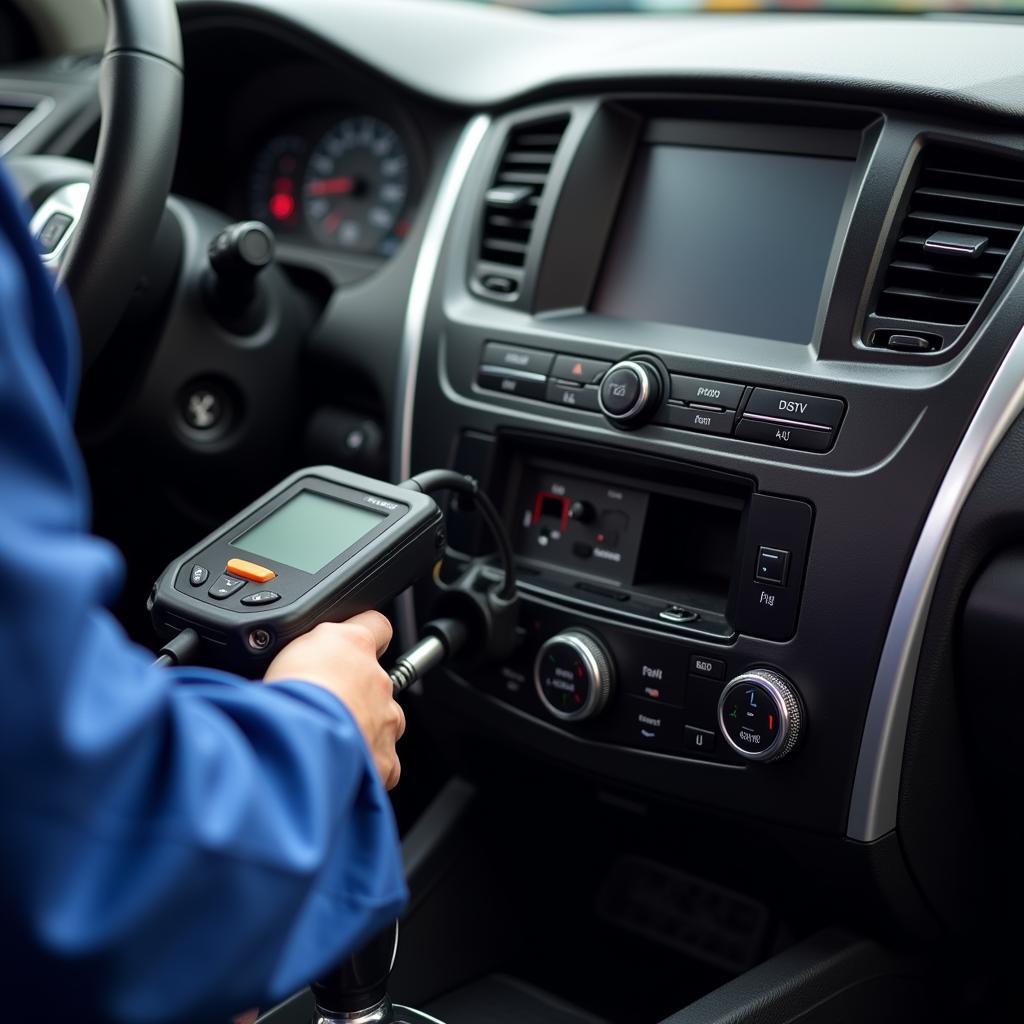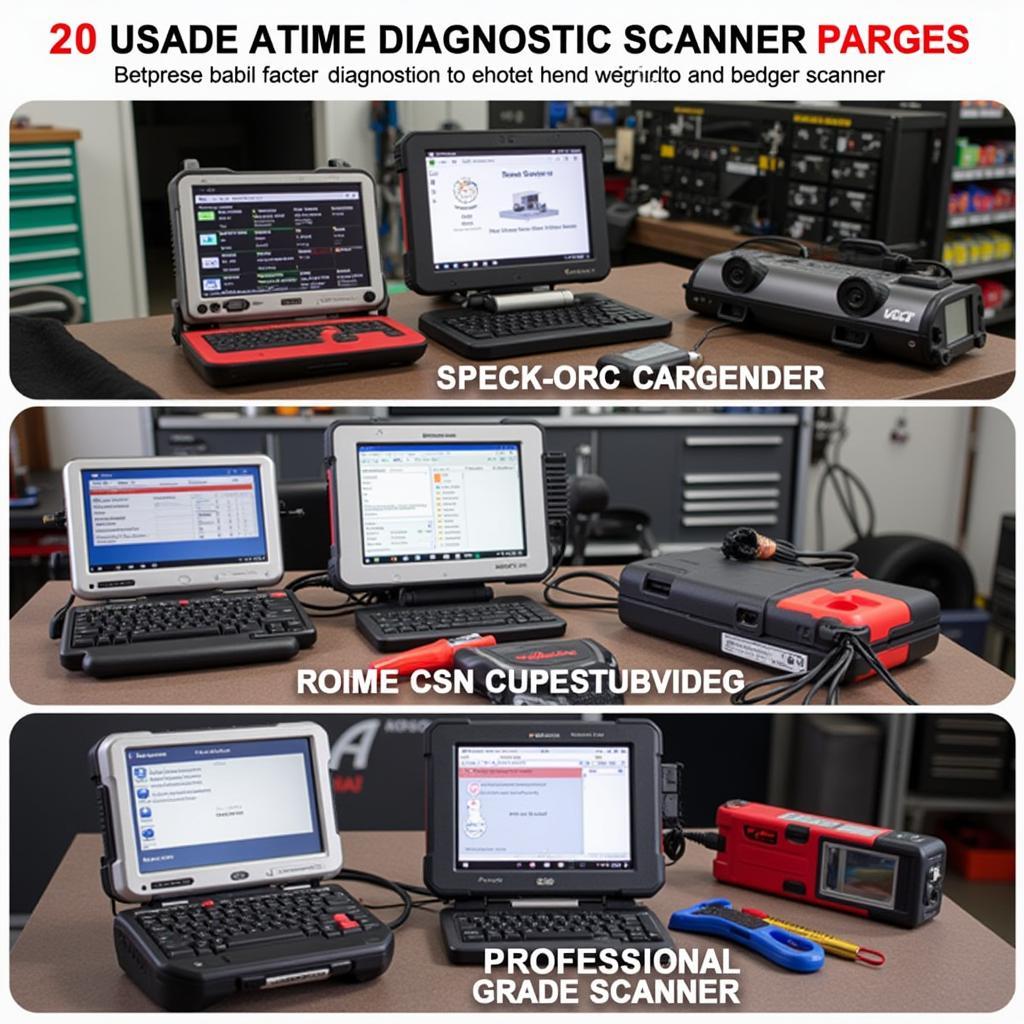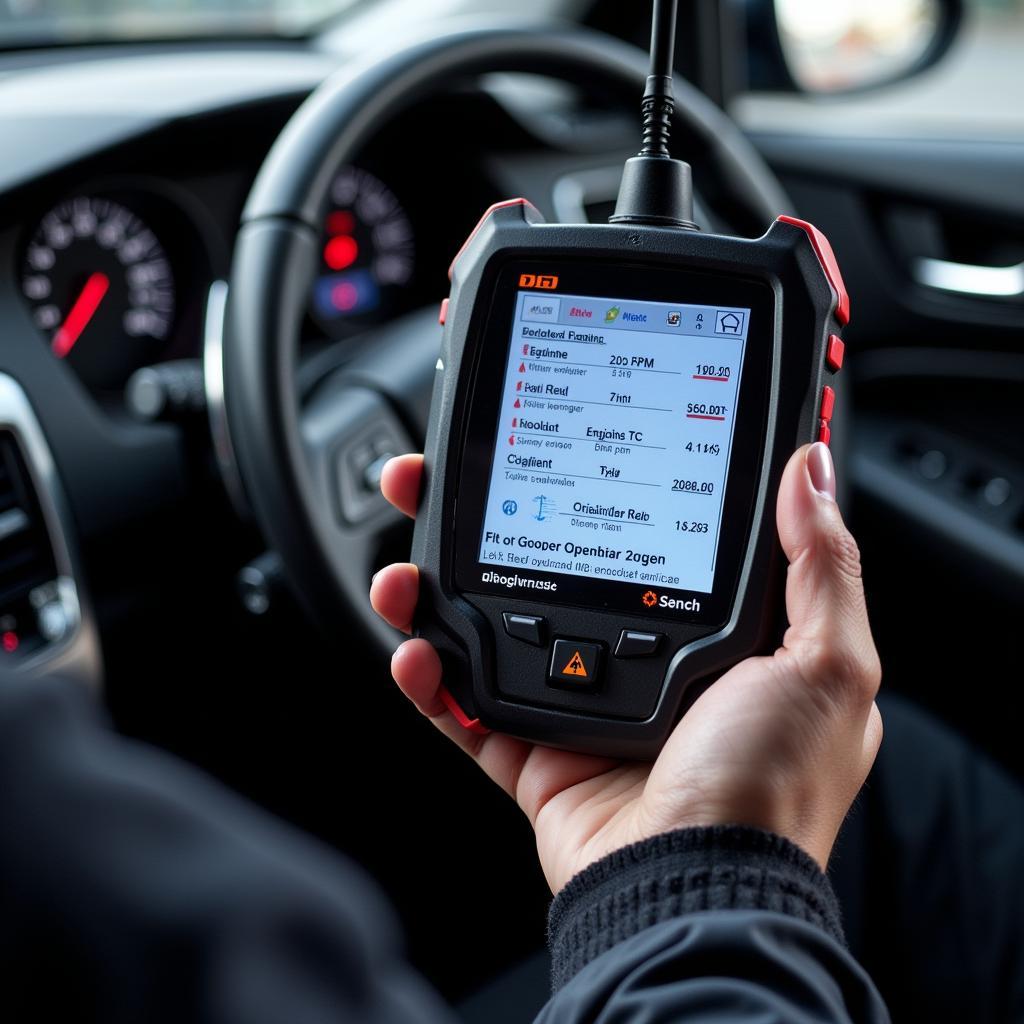A Diagnostic Scanner Car, also known as an OBD2 scanner, is an essential tool for car owners and mechanics alike. It serves as a window into your vehicle’s computer system, providing valuable insights into its health and performance. In today’s world of increasingly complex car technology, a diagnostic scanner car has become indispensable for accurate and efficient car repairs.
Why is a Diagnostic Scanner Car Important?
Gone are the days when mechanics relied solely on their intuition and experience to diagnose car problems. With the advent of electronic control units (ECUs) and intricate onboard computer systems, a diagnostic scanner car has become the go-to tool for identifying issues accurately.
Here’s why a diagnostic scanner car is crucial:
- Accurate Diagnosis: It retrieves and deciphers trouble codes stored in your car’s ECU, pinpointing the root cause of malfunctions.
- Time and Cost Savings: By quickly identifying problems, a diagnostic scanner car eliminates guesswork, saving you time and money on unnecessary repairs.
- Preventative Maintenance: Regular scans can detect minor issues before they escalate into major problems, enabling proactive maintenance.
- Enhanced Performance: Some scanners allow you to adjust parameters and optimize your car’s performance for fuel efficiency or power.
- Increased Transparency: Understanding the data from your car empowers you to make informed decisions about repairs and maintenance.
 Mechanic using a diagnostic scanner car
Mechanic using a diagnostic scanner car
How Does a Diagnostic Scanner Car Work?
A diagnostic scanner car communicates with your car’s ECU through the OBD2 port, a standardized 16-pin connector usually located under the dashboard on the driver’s side. When connected, the scanner sends requests for data, and the ECU responds with information about various systems, including:
- Engine and Transmission: RPM, speed, temperature, fuel/air mixture, ignition timing, and more.
- Emissions System: Oxygen sensor readings, catalytic converter performance, and evaporative emissions data.
- Brakes: ABS system status, brake fluid pressure, and wheel speed sensor data.
- Safety Restraints: Airbag system status, seatbelt pretensioner data, and occupant detection system information.
Types of Diagnostic Scanner Cars
There are various types of diagnostic scanner cars available, catering to different needs and budgets:
- Basic Code Readers: Affordable and portable, these scanners primarily read and clear basic trouble codes.
- Mid-Range Scanners: Offer more advanced features like live data streaming, graphing capabilities, and some bi-directional controls.
- Professional Scanners: Used by mechanics and dealerships, these comprehensive tools provide advanced diagnostics, programming capabilities, and access to manufacturer-specific data.
 Different types of diagnostic scanners
Different types of diagnostic scanners
Choosing the Right Diagnostic Scanner Car
Selecting the appropriate diagnostic scanner car depends on your specific requirements:
- Car Owner: A basic code reader or mid-range scanner with live data streaming can suffice for monitoring your vehicle’s health, diagnosing common problems, and resetting basic codes.
- DIY Enthusiast: A mid-range scanner with bi-directional controls and more advanced features enables deeper diagnostics, component testing, and some system calibrations.
- Professional Mechanic: A professional-grade scanner offering comprehensive diagnostics, programming capabilities, and access to manufacturer-specific data is essential for complex repairs and advanced diagnostics.
Benefits of Using a Diagnostic Scanner Car Regularly
Regular use of a diagnostic scanner car offers several advantages:
- Early Problem Detection: Allows you to identify minor issues before they escalate into major repairs, saving you time and money.
- Improved Fuel Efficiency: Detecting and resolving engine performance issues can improve fuel economy.
- Enhanced Vehicle Performance: Optimizing engine parameters and monitoring system performance can enhance your car’s overall performance.
- Increased Resale Value: Maintaining a well-documented service history with regular diagnostic scans can increase your car’s resale value.
 Diagnostic scanner showing a car diagnostics report
Diagnostic scanner showing a car diagnostics report
Conclusion
A diagnostic scanner car is an essential tool for any car owner or mechanic who wants to stay ahead of car problems and ensure their vehicle’s longevity. From simple code reading to advanced diagnostics and programming, a diagnostic scanner car empowers you with the knowledge to make informed decisions about your car’s health. By investing in the right diagnostic scanner for your needs, you can save time, money, and enjoy a smoother, more reliable driving experience.
FAQ
-
Can I use any diagnostic scanner car on any vehicle?
Most diagnostic scanner cars are compatible with vehicles manufactured after 1996 that comply with the OBD2 standard. However, some manufacturer-specific functions might require specialized scanners. -
Are diagnostic scanner cars difficult to use?
Basic code readers and mid-range scanners are generally user-friendly, with intuitive interfaces and easy-to-understand menus. Professional scanners might require some technical knowledge. -
Can I fix car problems myself using a diagnostic scanner car?
While a scanner can help diagnose problems, it’s essential to understand the underlying issue before attempting any repairs. Consult a qualified mechanic for complex problems. -
How often should I use a diagnostic scanner car?
It’s recommended to perform a diagnostic scan at least twice a year or whenever your car exhibits unusual behavior. -
Where can I get a reliable diagnostic scanner car?
DiagFixPro offers a wide range of diagnostic scanner cars for all needs and budgets. Visit our website or contact our experts for personalized recommendations.
Need help choosing the right diagnostic scanner for your needs? Contact our team of car diagnostic experts via WhatsApp at +1(641)206-8880 or email us at [email protected]. We are available 24/7 to assist you.

Leave a Reply